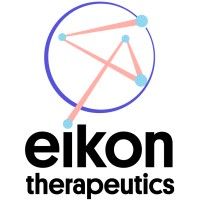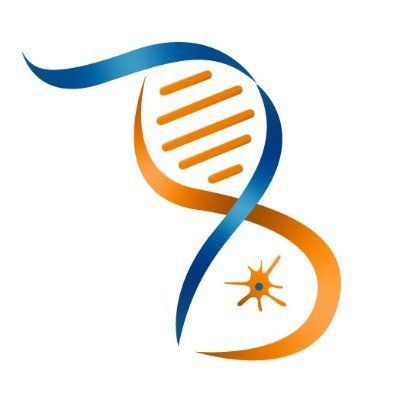预约演示
更新于:2025-05-07

Eikon Therapeutics, Inc.
更新于:2025-05-07
概览
标签
肿瘤
泌尿生殖系统疾病
内分泌与代谢疾病
小分子化药
化学药
疾病领域得分
一眼洞穿机构专注的疾病领域
暂无数据
技术平台
公司药物应用最多的技术
暂无数据
靶点
公司最常开发的靶点
暂无数据
| 排名前五的药物类型 | 数量 |
|---|---|
| 小分子化药 | 8 |
| 化学药 | 1 |
| 排名前五的靶点 | 数量 |
|---|---|
| PARP1(聚腺苷二磷酸核糖聚合酶1) | 3 |
| TLR7 x TLR8 | 2 |
| AR(雄激素受体) | 2 |
| WRN | 1 |
| VCP(VCP蛋白) | 1 |
关联
9
项与 Eikon Therapeutics, Inc. 相关的药物作用机制 TLR7激动剂 [+1] |
非在研适应症- |
最高研发阶段临床2/3期 |
首次获批国家/地区- |
首次获批日期- |
靶点 |
作用机制 PARP1抑制剂 |
在研机构 |
原研机构 |
非在研适应症- |
最高研发阶段临床1/2期 |
首次获批国家/地区- |
首次获批日期- |
靶点 |
作用机制 PARP1抑制剂 |
原研机构 |
非在研适应症- |
最高研发阶段临床1/2期 |
首次获批国家/地区- |
首次获批日期- |
10
项与 Eikon Therapeutics, Inc. 相关的临床试验NCT06697301
A Multicenter, Randomized, Double-Blind, Active Comparator-Controlled, Adaptive Phase 2/3 Study to Evaluate the Safety and Efficacy of EIK1001 and Pembrolizumab Versus Placebo and Pembrolizumab as First-Line Therapy in Participants With Advanced Melanoma.
The study is for patients with advanced melanoma who are eligible for standard therapy with Pembrolizumab.
开始日期2025-04-01 |
申办/合作机构 |
NCT06907043
A Phase 1/2, Open-label, Multicenter, Dose-escalation, and Dose-Optimization Study to Evaluate the Safety, Tolerability, and Activity of EIK1004 (IMP1707) as Monotherapy in Participants With Advanced Solid Tumors
This study will evaluate the safety, tolerability, and preliminary efficacy of EIK1004 (IMP1707) in participants with recurrent advanced/metastatic breast cancer, ovarian cancer, metastatic castrate resistant prostate cancer (mCRPC) and pancreatic cancer with deleterious/suspected deleterious mutations of select homologous recombination repair (HRR) genes.
Condition or disease Intervention/treatment Phase Advanced Solid Tumors Drug: EIK1004 (IMP1707) Phase 1/Phase 2
Condition or disease Intervention/treatment Phase Advanced Solid Tumors Drug: EIK1004 (IMP1707) Phase 1/Phase 2
开始日期2025-04-01 |
申办/合作机构 |
NCT06246110
A Phase 2 Study of EIK1001 in Combination With Pembrolizumab and Chemotherapy in Patients With Stage 4 Non-Small Cell Lung Cancer
This study is for patients with advanced/metastatic non-small cells lung cancer (NSCLC) who have not received any treatment through the vein for the advanced disease.
开始日期2024-02-06 |
申办/合作机构 |
100 项与 Eikon Therapeutics, Inc. 相关的临床结果
登录后查看更多信息
0 项与 Eikon Therapeutics, Inc. 相关的专利(医药)
登录后查看更多信息
17
项与 Eikon Therapeutics, Inc. 相关的文献(医药)2025-04-25·Cancer Research
Abstract CT197: A first-in-human (FIH), phase 1/2, dose-escalation, dose-optimization, and dose-expansion study of PARP1-selective inhibitor EIK1003 as monotherapy and in combination in patients with advanced solid tumors
作者: Zhang, Jian ; Rasco, Drew ; Teng, Christina ; Taromino, Caroline ; Doger, Bernard ; Chen, Viola J. ; Sohn, Joohyuk ; Falchook, Gerald ; Zhang, Yawei ; Sonpavde, Guru ; Hsieh, Chih-Yi ; Li, Yongsheng ; Zhu, Jianqing
2025-01-01·Journal for ImmunoTherapy of Cancer
Targeted inhibition of Aurora kinase A promotes immune checkpoint inhibition efficacy in human papillomavirus-driven cancers
Article
作者: Yapindi, Lacin ; Johnson, Faye M ; O'Hara, Madison P ; Mazumdar, Tuhina ; Sastry, Jagannadha K ; Ghosh, Soma ; Sinha, Pragya
2024-06-01·Journal of Clinical Oncology
A phase 2 study of EIK1001, a Toll-like receptor 7/8 (TLR7/8) agonist, in combination with pembrolizumab and chemotherapy in patients with stage 4 non-small cell lung cancer.
作者: Wang, Meihua ; Chen, Kevin ; Kurland, Etah ; Garofalo, Brage ; Costin, Dan ; Gralla, Richard J.
122
项与 Eikon Therapeutics, Inc. 相关的新闻(医药)2025-05-01
There are always trade-offs to make when studying cells. A biologist either kills the cell to scrutinize its insides or has to run more complex experiments, using tools like fluorescent tags to detect certain biomolecules.
A biotech startup believes it has a new solution to this longstanding problem. Stately Bio has raised a $12 million seed round led by AIX Ventures to advance machine learning techniques that recognize signals from simple images of living cells, CEO Frank Li told
Endpoints News.
The Palo Alto, CA-based startup will officially launch on Friday after three years in stealth mode.
Like many in AI bio, Li comes from the world of technology, not biology. He worked as a software engineer at Palantir and Google X before being recruited by Daphne Koller to join her new machine learning team at Calico Life Sciences, an Alphabet-backed biotech. Li spent four years leading Calico’s ML group after Koller left shortly after his arrival to found
insitro
, another AI-focused biotech.
Those were formative years, according to Li, now 34. He reported directly to Calico CEO Art Levinson, the legendary biotech figure who previously ran Genentech, and started to see the potential for ML techniques in cell imaging. In 2019, Li entered a competition at NeurIPS, a top machine learning conference, to find signals from cell images. His team went in thinking 50% accuracy would be a great outcome. They achieved over 99% accuracy, finishing second out of over 800 entrants.
What he discovered is the same computer vision techniques that have fueled progress in fields like self-driving cars could also work in biology.
“There was a surprising amount of richness to those images that lay beyond our human eye’s ability to comprehend,” Li said. “It was one of those moments that made me go, ‘There’s something really special here.’”
Li left Calico in 2021 to found Stately Bio, which began operating in March 2022 with a pre-seed round to focus on cell imaging. Today, Stately is using what Li called “grade-school microscopes” to perform brightfield imaging, which shines light on living cells and takes an image of the other side. Machine learning algorithms find the correlations between cell shapes and textures and their biological functions.
“Historically, so much of biology has been learned by looking through a microscope,” Li said. “But it’s only until recently that we’ve been able to take a more quantitative and systematic approach.”
Stately isn’t completely alone with this idea. Two years ago, Recursion
switched from a more complicated cell-painting technique
to brightfield imaging. Other startups like Eikon Therapeutics are working on complementary approaches. Eikon
created its own super-resolution microscopes
to track single particles inside of living cells.
Stately takes a zoomed-out view compared to Eikon, Li said. While observing cells at lower resolutions, the company’s method can watch way more cells, Li said, which is a benefit in building the datasets that power algorithms.
For results, Li said Stately improved the ability to differentiate stem cells into liver cells. They have seen 3x to 10x better scores on tests of key liver functions than today’s best techniques, Li said. While the company isn’t yet sharing details about its own pipeline, Li said he sees potential in using lab-made liver cells as a cell replacement therapy for certain liver diseases.
Stately is also building AI models that can predict an experiment’s chances of success at very early stages. For instance, the company can take data from the second day of an experiment to predict how those cells will look in a couple of weeks, suggesting if that experiment is worth carrying out or stopping early.
细胞疗法
2025-04-30
·英派药业
中国上海,北京时间2025年4月30日 - 英派药业在2025年4月25日至30日于芝加哥举行的2025年美国癌症研究协会(AACR)年会上,以壁报形式公布ATR抑制剂IMP9064的发现和早期开发结果。壁报展示标题:一种高活性和高选择性的ATR抑制剂IMP9064的发现和开发日期及时间:星期二,2025年4月29日,美国中部时间上午9:00 至上午12:00 地点:Section 15,PO.ET06.07壁报编号:#4203结果总结IMP9064是由英派药业自主研发的一款高活性、高选择性的ATR抑制剂,临床前研究显示其对ATR有强效抑制活性,并在激酶中具有高度选择性,同时对多种ATM缺陷型肿瘤细胞展现出很强的细胞毒性。该药物在临床前研究中也展现出长半衰期和高暴露量的药代动力学特征。IMP9064在结直肠癌CDX模型中显示出剂量相关的抗肿瘤作用,且动物耐受良好。此外,体外和体内研究结果表明,IMP9064与其他药物(PARP抑制剂、WEE1抑制剂、PKMYT1抑制剂或HER2抗体偶联药物)联合使用时,具有良好的抗肿瘤活性和协同作用。目前,IMP9064已进入临床1/2期研究,以评估单独治疗或与PARP抑制剂Senaparib联合治疗晚期实体瘤患者的安全性和有效性(NCT05269316),其2期推荐剂量(RP2D)已经确定,并正在针对特定肿瘤患者进行扩展研究。关于英派药业英派药业致力于研发具有自主知识产权的靶向抗癌创新药,专注于合成致死作用机制。公司以DNA损伤修复通路(DDR)自主研发产品为基础,构建了全球生物医药公司中覆盖面最广的DDR产品管线之一,并且正在逐步拓展到更多的全新的合成致死靶点。公司管线包括PARP抑制剂塞纳帕利(Senaparib/IMP4297)、Wee1抑制剂(IMP7068)、ATR抑制剂(IMP9064)、PARP1选择性抑制剂 (IMP1734,与美国Eikon Therapeutics合作开发)以及多个其他DDR靶点抑制剂。其中最成熟的研发项目PARP抑制剂塞纳帕利在全球范围包含中国已开展卵巢癌、小细胞肺癌等适应症的临床II/III期研究。塞纳帕利用于晚期卵巢癌全人群一线维持治疗的III期临床研究(FLAMES)已达到主要研究终点,显示了同类最佳的药效和安全性。基于FLAMES研究成果,中国国家药监局(NMPA)已批准了塞纳帕利的新药上市申请。Wee1抑制剂IMP7068和ATR抑制剂IMP9064已在包括美国、中国在内的全球多个国家及地区开展I期临床研究,确定了临床二期推荐剂量(RP2D)。PARP1选择性抑制剂IMP1734 已经获得 FDA和NMPA的临床试验许可,在2024年初完成第一例患者入组。 更多信息请浏览www.impacttherapeutics.com投资者关系及媒体英派药业+86 21 6841 1121IR@impacttherapeutics.com
AACR会议临床2期临床结果临床1期
2025-04-17
·创鉴汇
2025年初,深度求索公司(DeepSeek)推出的开源大模型DeepSeek-R1以低成本、高性能的技术突破引发全球AI产业范式变革,同时也为药物研发注入“普惠算力”的新动能。这一里程碑事件迅速引发连锁反应,让AI制药再次进入聚光灯下。2025年第一季度,全球至少有38家AI制药公司获得了总计超过17.5亿美元的融资。值得关注的亮点包括:英美引领大额融资:美国及英国凭借相对成熟的生物科技生态和Alphabet、Flagship Pioneering等平台的推动,诞生Isomorphic Labs A轮6亿美元、Eikon Therapeutics D轮3.51亿美元和Lila Sciences种子轮2亿美元大额融资事件。生物制药与技术平台并驾齐驱:获融资企业中通过AI赋能内部药物管线研发的公司数量与AI制药技术平台建设公司数量大致相当,呈现“垂直应用+底层工具”双轮驱动格局。小分子药物研发为核心场景:针对小分子药物发现的公司收到关注,如Eikon Therapeutics、英矽智能均获过亿美元资金支持。AI主要赋能“药物发现加速”“靶点识别”等环节。Isomorphic Labs获6亿美元A轮融资Isomorphic Labs成立于2021年,致力于运用人工智能变革药物发现,开启生物医学突破的新纪元。技术依托于诺贝尔奖获奖AI突破——AlphaFold。Isomorphic Labs与Google DeepMind于2024年5月联合开发并发布了AI模型AlphaFold 3,该模型可高精度预测生命分子的结构和相互作用。Isomorphic Labs已构建了包含适用于多个治疗领域和药物模式的药物设计基础AI模型。3月31日,公司宣布在其首轮外部融资中成功筹集了6亿美元。这笔资金将用于进一步开发其下一代人工智能药物设计引擎,并推动治疗项目进入临床阶段。Eikon Therapeutics获3.51亿美元D轮融资Eikon Therapeutics正通过科学与工程的深度融合推进突破性疗法的研发。公司专有的单分子跟踪(SMT)技术平台可以在不到一秒钟的时间内可视化活细胞中数十万个蛋白质运动事件。通过将人工智能能力和先进的自动化与SMT相结合,实现了对活细胞中蛋白质实时运动的精准可视化与定量测量,旨在为患有重大疾病的患者带来全新的治疗选择。Eikon的临床阶段管线包括Toll样受体7和8的共激动剂EIK1001,正处于治疗晚期黑色素瘤的3期试验阶段;高选择性的PARP1抑制剂EIK1003,目前正于乳腺癌、卵巢癌、前列腺癌或胰腺癌患者中开展1期试验;一种可进入中枢神经系统的PARP1选择性抑制剂EIK1004,预计启动针对脑癌的1期研究。2月27日,Eikon Therapeutics宣布完成3.51亿美元D轮融资。用于支持其主要管线EIK1001的临床开发。Lila Sciences完成2亿美元种子轮融资Lila Sciences成立于2023年,源于Flagship Pioneering的内部实验室,致力于构建科学智能平台,以及应用于生命、化学和材料科学的完全自主实验室。公司正在开发一种先进的AI技术来处理大量数据和预测并且帮助科学家设计并执行新实验,提出假设并在真实环境中进行测试。公司的平台已展示出初步成果,例如设计新型遗传药物和数百种抗体。3月10日,知名创投平台Flagship Pioneering正式发布AI for Science公司——Lila Sciences。同时Lila Sciences获得2亿美元种子轮资金。英矽智能获1.1亿美元E轮融资英矽智能成立于2014年,是一家由生成式人工智能驱动的临床阶段生物医药科技公司,通过下一代人工智能系统连接生物学、化学、临床医学和科学研究领域,利用深度生成模型、强化学习、转换模型等现代机器学习技术,构建人工智能药物研发平台,识别全新靶点并生成具有特定属性分子结构的候选药物。英矽智能聚焦癌症、纤维化、免疫、中枢神经系统疾病、衰老相关疾病等未被满足医疗需求领域,推进并加速创新药物研发。3月13日,公司宣布已完成由惠理集团旗下的私募股权基金、浦东创投和浦发集团、锡创投和宜兴国控联合领投的1.1亿美元E轮融资。本轮融资将用于推进英矽智能用于治疗特发性肺纤维化(IPF)的核心候选药物的临床验证,并加速对其他自主研发和合作开发的药物管线的探索。Character Biosciences完成9300万美元B轮融资Character Biosciences是一家致力于改变多基因疾病药物开发的精准医疗公司,利用人工智能和计算机视觉工具从图像中识别生物标志物,以跟踪疾病轨迹。公司通过数据驱动方法推动了主打药物CTX203与CTX114的发现与研发,这两款药物分别针对视网膜细胞死亡和视力丧失的关键驱动因素。CTX114为一款潜在“best-in-class”补体抑制剂,旨在减缓晚期干性年龄相关性黄斑变性(AMD)中地图样萎缩的进展。CTX203则是一款潜在“first-in-class”的脂质调节剂,旨在预防AMD向晚期进展。3月25日,Character Biosciences宣布完成超额认购的9300万美元B轮融资,以加速推进其针对退行性眼病的药物研发。读者们请星标⭐创鉴汇,第一时间收到推送免责声明:本文仅作信息交流之目的,文中观点不代表药明康德立场,亦不代表药明康德支持或反对文中观点。本文也不是治疗方案推荐。如需获得治疗方案指导,请前往正规医院就诊。版权说明:欢迎个人转发至朋友圈,谢绝媒体或机构未经授权以任何形式转发/复制至其他平台。转发授权请在「创鉴汇」微信公众号留言联系我们。更多数据内容推荐点击“在看”,分享创鉴汇健康新动态
临床2期临床1期突破性疗法临床3期
100 项与 Eikon Therapeutics, Inc. 相关的药物交易
登录后查看更多信息
100 项与 Eikon Therapeutics, Inc. 相关的转化医学
登录后查看更多信息
组织架构
使用我们的机构树数据加速您的研究。
登录
或

管线布局
2026年03月01日管线快照
管线布局中药物为当前组织机构及其子机构作为药物机构进行统计,早期临床1期并入临床1期,临床1/2期并入临床2期,临床2/3期并入临床3期
药物发现
1
3
临床前
临床1期
2
2
临床2期
临床3期
1
登录后查看更多信息
当前项目
| 药物(靶点) | 适应症 | 全球最高研发状态 |
|---|---|---|
Resiquimod Sulfate ( TLR7 x TLR8 ) | 局部晚期黑色素瘤 更多 | 临床3期 |
IMP-1707 ( PARP1 ) | 晚期恶性实体瘤 更多 | 临床2期 |
IMP-1734 ( PARP1 ) | 晚期恶性实体瘤 更多 | 临床2期 |
BDB-018 ( TLR7 x TLR8 ) | 晚期恶性实体瘤 更多 | 临床1期 |
WRN抑制剂(Eikon) ( WRN ) | 肿瘤 更多 | 临床1期 |
登录后查看更多信息
药物交易
使用我们的药物交易数据加速您的研究。
登录
或

转化医学
使用我们的转化医学数据加速您的研究。
登录
或

营收
使用 Synapse 探索超过 36 万个组织的财务状况。
登录
或

科研基金(NIH)
访问超过 200 万项资助和基金信息,以提升您的研究之旅。
登录
或

投资
深入了解从初创企业到成熟企业的最新公司投资动态。
登录
或

融资
发掘融资趋势以验证和推进您的投资机会。
登录
或

生物医药百科问答
全新生物医药AI Agent 覆盖科研全链路,让突破性发现快人一步
立即开始免费试用!
智慧芽新药情报库是智慧芽专为生命科学人士构建的基于AI的创新药情报平台,助您全方位提升您的研发与决策效率。
立即开始数据试用!
智慧芽新药库数据也通过智慧芽数据服务平台,以API或者数据包形式对外开放,助您更加充分利用智慧芽新药情报信息。
生物序列数据库
生物药研发创新
免费使用
化学结构数据库
小分子化药研发创新
免费使用


